Filter by
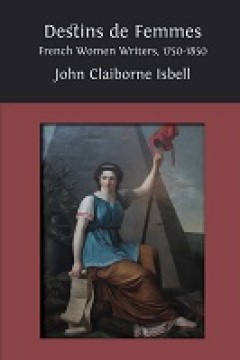
Destins de femmes: French Women Writers, 1750-1850
Destins de femmes is the first comprehensive overview of French women writers during the turbulent period of 1750-1850. John Isbell provides an essential collection that illuminates the impact women writers had on French literature and politics during a time marked by three revolutions, the influx of Romantic art, and rapid technological change. Each of the book’s thirty chapters introduces a…
- Edition
- Ed. 1
- ISBN/ISSN
- 9781805110323, 9781805110330
- Collation
- 202
- Series Title
- -
- Call Number
- 909 ISB d

Novel Translations: The European Novel and the German Book, 1680–1730
Many early novels were cosmopolitan books, read from London to Leipzig and beyond, available in nearly simultaneous translations into French, English, German, and other European languages. In Novel Translations, Bethany Wiggin charts just one of the paths by which newness—in its avatars as fashion, novelties, and the novel—entered the European world in the decades around 1700. As readers ac…
- Edition
- Ed. 1
- ISBN/ISSN
- 9780801460074, 9780801476983
- Collation
- 264
- Series Title
- Signale: Modern German Letters, Cultures, and Thought
- Call Number
- 809 WIG n
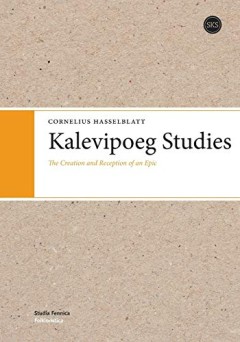
Kalevipoeg Studies : The Creation and Reception of An Epic
"The poem Kalevipoeg, over 19,000 lines in length, was composed by Friedrich Reinhold Kreutzwald (1803–1882) on the basis on folklore material. It was published in an Estonian-German bilingual edition in six instalments between 1857 and 1861; it went on to become the Estonian national epic. This first English-language monograph on the Kalevipoeg sheds light on various aspects of the emergence…
- Edition
- -
- ISBN/ISSN
- 9789522227119
- Collation
- 148 halaman
- Series Title
- -
- Call Number
- 800 HAS k
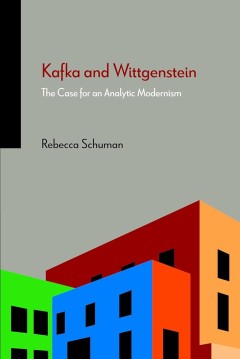
Kafka and Wittgenstein : The Case for an Analytic Modernism
In Kafka and Wittgenstein, Rebecca Schuman undertakes the first ever book-length scholarly examination of Ludwig Wittgenstein’s philosophy of language alongside Franz Kafka’s prose fiction. In groundbreaking readings, she argues that although many readers of Kafka are searching for what his texts mean, in this search we are sorely mistaken. Instead, the problems and illusions we portend to …
- Edition
- -
- ISBN/ISSN
- 9780810131507
- Collation
- 272 halaman
- Series Title
- -
- Call Number
- 800 SCH k

Literary Impressionisms : Resonances of Impressionism in Swedish and Finland-…
This book aims to locate and draw out resonances of impressionism in Swedish and Finland-Swedish prose at the end of the nineteenth century, a field hitherto overlooked in the critical debate on literary impressionism. In order to frame the many alternative approaches to this issue, it examines the use of the term ‘literary impressionism’ not only on the Scandinavian scene but also in an in…
- Edition
- -
- ISBN/ISSN
- 9788867057245
- Collation
- -
- Series Title
- -
- Call Number
- 800 STO l
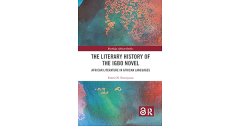
The Literary History of the Igbo Novel : African Literature in African Languages
This book looks at the trends in the development of the Igbo novel from its antecedents in oral performance, through the emergence of the first published novel, Omenuko, in 1933 by Pita Nwana, to the contemporary Igbo novel. Defining "Igbo literature" as literature in Igbo language, and "Igbo novel" as a novel written in Igbo language, the author argues that oral and written literature in Afric…
- Edition
- -
- ISBN/ISSN
- 9780367369613
- Collation
- 160 halaman
- Series Title
- -
- Call Number
- 800 EME l
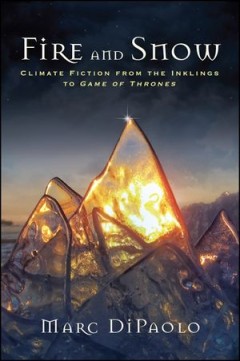
Fire and Snow : Climate Fiction from the Inklings to Game of Thrones
Fellow Inklings J. R. R. Tolkien and C. S. Lewis may have belonged to different branches of Christianity, but they both made use of a faith-based environmentalist ethic to counter the mid-twentieth-century's triple threats of fascism, utilitarianism, and industrial capitalism. In Fire and Snow, Marc DiPaolo explores how the apocalyptic fantasy tropes and Christian environmental ethics of the Mi…
- Edition
- -
- ISBN/ISSN
- 9781438470450
- Collation
- -
- Series Title
- SUNY Press Open Access
- Call Number
- 800 DIP f
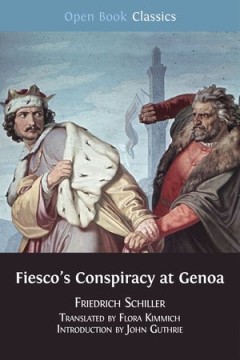
Fiesco's Conspiracy at Genoa
Within two years of the success of his first play Die Räuber on the German stage in 1781, Schiller wrote a drama based on a rebellion in sixteenth century Italy, its title: The Conspiracy of Fiesco at Genoa. A Republican Tragedy. At the head of the conspiracy stood Gian Luigi de’ Fieschi (1524–1547), Schiller’s Count Fiesco, a clever, courageous and charismatic figure, an epicurean and u…
- Edition
- -
- ISBN/ISSN
- 9781783740444
- Collation
- 150 halaman
- Series Title
- Open Book Classics Volume: 2
- Call Number
- 800 SCH f
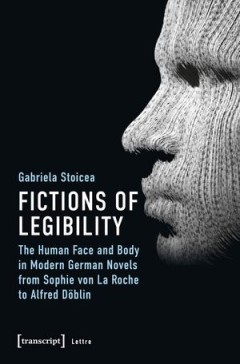
Fictions of Legibility : The Human Face and Body in Modern German Novels from…
Gabriela Stoicea examines how the incidence and role of physical descriptions in German novels changed between 1771 and 1929 in response to developments in the study of the human face and body. As well as engaging the tools and methods of literary analysis, the study uses a cultural studies approach to offer a constellation of ideas and polemics surrounding the readability of the human body. By…
- Edition
- -
- ISBN/ISSN
- 9783839447208
- Collation
- 200 halaman
- Series Title
- -
- Call Number
- 800 STO f
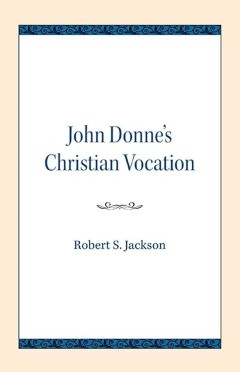
John Donne's Christian Vocation
John Donne’s poetry is often difficult and perplexing, even more so because it undergoes a shift away from secular topics after he converts and begins to lead a religious life. Robert S. Jackson’s John Donne’s Christian Vocation is one of the first studies that takes seriously the ways that Donne’s Christian vocation permeates all of Donne’s writings, not just those after his conversi…
- Edition
- -
- ISBN/ISSN
- 9780810138476
- Collation
- 200 halaman
- Series Title
- -
- Call Number
- 800 JAC j
 Computer Science, Information & General Works
Computer Science, Information & General Works  Philosophy & Psychology
Philosophy & Psychology  Religion
Religion  Social Sciences
Social Sciences  Language
Language  Pure Science
Pure Science  Applied Sciences
Applied Sciences  Art & Recreation
Art & Recreation  Literature
Literature  History & Geography
History & Geography